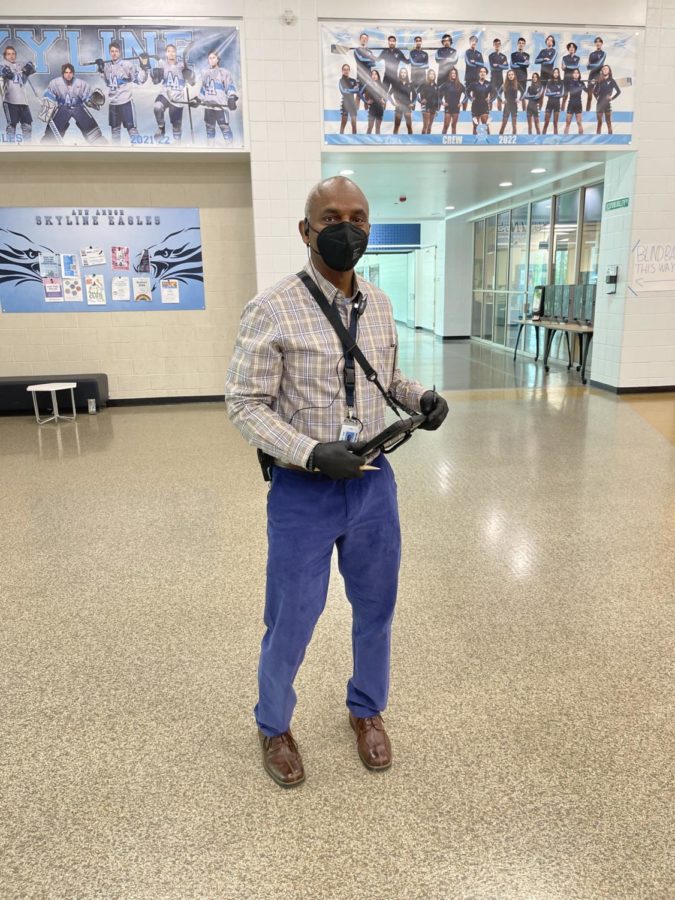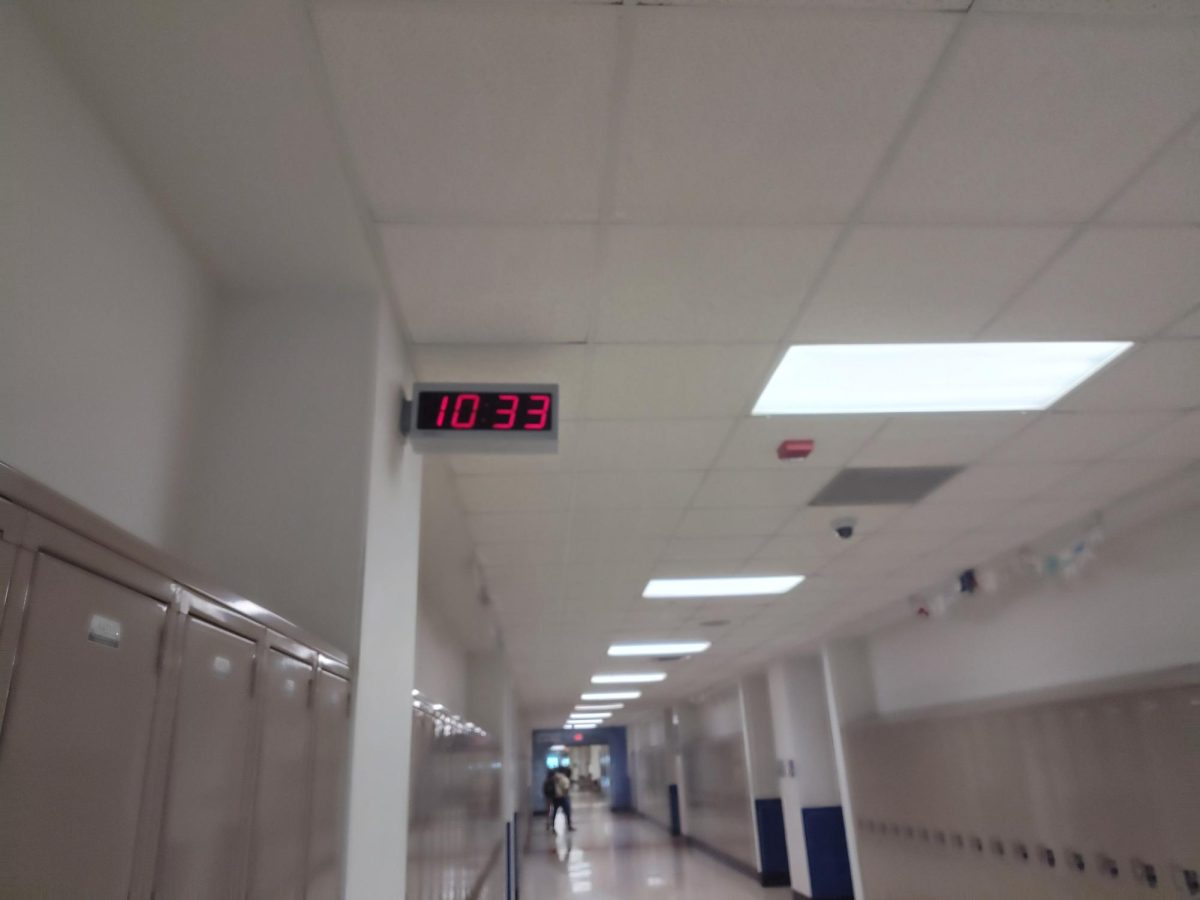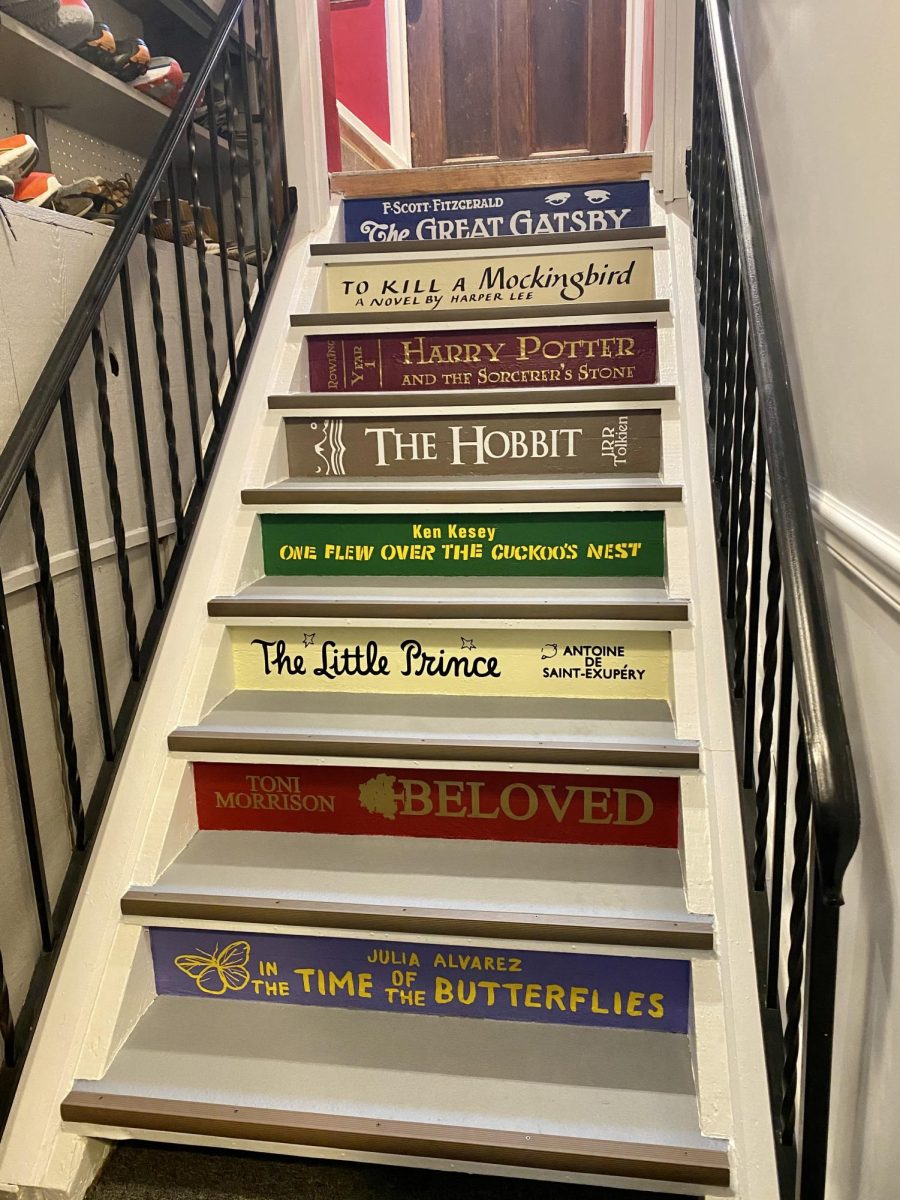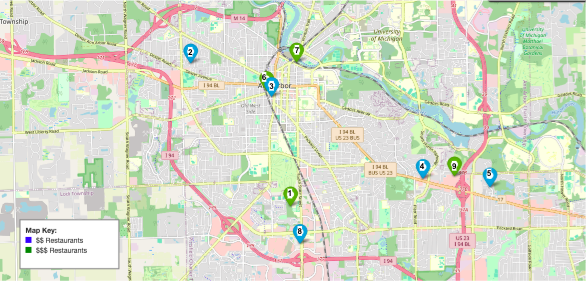Our first thought when coming into this school about the Community Assistants (CAs) was that they were here to protect and monitor us outside of the classroom. After years of spending time with them, we’ve learned they’re so much more then “hall monitors,” “security,” and “community assistants.” They are real people, with a whole life behind and ahead of them.
We started with discussing the CA’s backgrounds and what led them to become a community assistant. The answers we received were positive. They want to see us at our best. They do sometimes feel like we struggle to see that they are only looking out for us and our best interests, because that’s the part that really matters. What really gets to them is them seeing us walk across that stage at the beginning of June.
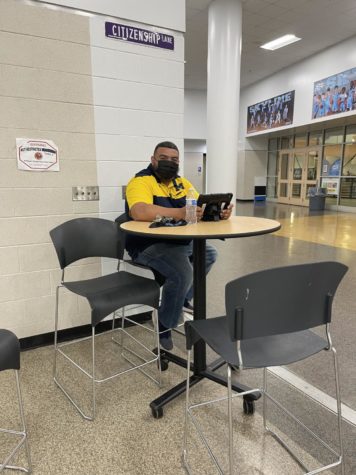
Christopher Ash has been a CA at Skyline for two years. Before he became a CA at Skyline, he was the evening security guard. Ash wanted to be a CA for “a lot of things, the main reason was being around the students, and seeing how I used to be a former student of Skyline, graduated in 2014, you know I just wanted to be back where I felt welcomed. Seeing you all grow from freshman year to senior year is one of the biggest strong suits of being a CA.” He mentioned some challenges around being a CA; “everyday is different, some days are easier than others.” Ash says the biggest struggle he has faced as CA was being hesitant at first in figuring out how to build relationships with the students here. But, over time, Ash learned how to do his job and connect with staff. He also coaches football and lacrosse, which helped him to be a better mentor.
James House (Coach House) wanted to be a CA because “when I was in school they didn’t have any. I feel like all students need a Community Assistant.” House knew he could build relationships with the students and help the students move in a positive way. Seeing the students happy and positive makes him love his job and want to stay. A challenge House says he faces as a CA is that students see the Community Assistants as security police and they don’t understand that they are really here to help. House also says that they can’t give out consequences but if a consequence is given then it is their responsibility to make sure it’s followed through. His biggest hurdle is “letting the kids know that we are here to help and that you can trust us – that we also don’t want to hurt you.” House told us that his biggest reward he sees as a CA is “when the students come in as freshmen and never go to class and then in a blink of an eye they are seniors and getting ready to walk across the stage.”
Steven Stone wanted to be a CA because “I’ve always had a background where I helped people so I thought this would be a good way to help people, such as people and students I’ve known from church and social entities.” Is being a CA hard? “Yes, being a CA is very hard because you have a lot of different personalities and you have to tell people about rules that they sometimes don’t wanna hear. You also have to be observant of everything that’s going on because you don’t want anything bad to happen to anyone while you’re working.”
Tina Trombley “I wanted to be a CA because this is my 31st year working. I wanted to do something different other than work in a self-contained classroom…I wanted to branch out and be with more students. Plus, it was more money!” The biggest challenge Tina faces while being a CA is having breaks. Being away from school for a long time gives her anxiety before returning. When asked how she felt about students leaving for lunch, she said that she thinks the seniors should have open campus, because she went to Huron and had open campus herself.
Are there any challenges: “Yes, a lot of challenges, a lot of different attitudes and mentalities are out there now. A lot of people are using substances that aren’t good for the body and definitely aren’t good for them or allowed in school so there are challenges, yes!”
How do you feel about students leaving for lunch: “I think we have to follow the rules that are put in place by the establishment. You may not understand the reason why it’s there, but there are reasons, so you have to comply with that. If you have a legitimate concern about the rules, then you should follow the policy of getting the rule changed and legal format setting that’s allowed by the schools.”
If you had to give a piece of advice to the students in the school what would it be: “[t]hat life doesn’t end here. The world’s a lot bigger than what happens at Skyline and you need to prepare yourself for what’s bigger than what’s going on here!”
One piece of advice you would give to seniors going into adulthood: “[t]hings are going to change and you have to be responsible for yourself… make wise decisions, because the decisions you make today can affect the rest of your life and some decisions can’t be changed.”
In conclusion, our CAs don’t try to come at us with a whole bunch of rules and regulations; that’s just their job to keep us educated and safe. They want to show students that there are consequences for your actions, and that your decisions will heavily impact your life when you leave high school and enter the world. They care for every one of us in the building. They know it can be annoying having people enforcing rules, but they’re doing it for a reason: for us.

